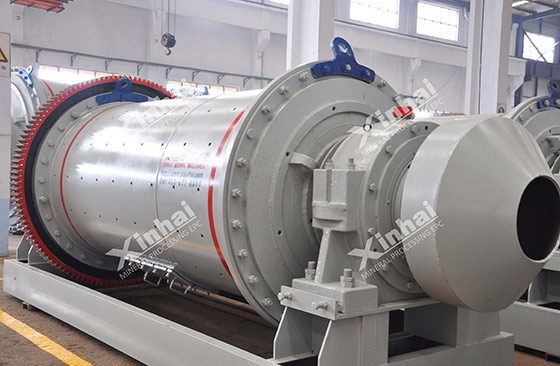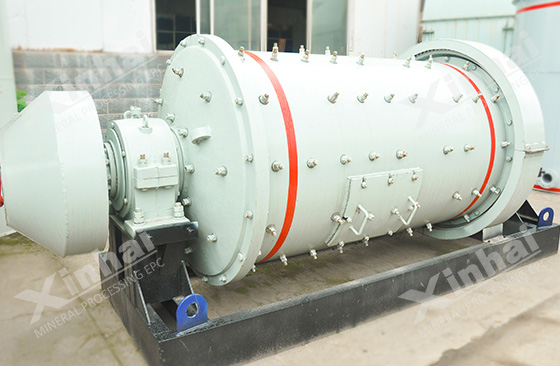
According to their different discharging end, ball mills can be divided into three types: grid type, overflow type, and peripheral discharge type. In practice, peripheral discharge ball mills are rarely used; while grid ball mills and overflow ball mills are commonly adopted. If comparing the grid types and overflow types, what are the common grounds and differences between them? Under what circumstances are grid ball mills a better choice? And overflow ball mills? Here, we will give a brief introduction to you.
Overflow ball mills and grid ball mills have basically the same structure, consisting of shells, feeding ends, discharging ends, main bearings as well as drive and lubrication system.

The different structure of Feeding End. The main part of the overflow ball mills feeding end is a helical blade with the opposite rotation direction to the mills; while that of grid ball mills is grid plate.
The ground ore fines in overflow ball mills overflow outside with the help of height difference between the neck of hollow shafts of discharging end and feeding end. Meantime, steel balls and the rest ore particles first settled into the bottom of the reversed helical blade and then be transmitted back to the mills. Overflow ball mills belong to high-level ore discharge. By contrast, the fine-grained particles of grid ball mills are discharged by grid plate, which belongs to low-level ore discharge.
Overflow ball mills have lower rotary speed and their steel balls drop on and on after rising to a certain level, so their acting force is mainly grinding-based, supplemented by impact power. While grid ball mills have higher rotary speed and their steel balls are thrown and fallen, so the acting force mainly impacts, supplemented by grinding.

Compared with grid ball mills of the same specification, the overflow ball mills productivity is lower, about 10% to 15%, but their grinding products are finer.
Grid ball mills are characteristic of high productivity, high grinding efficiency and coarser products, which makes themselves commonly used in primary grinding stage or secondary grinding stage with -200 mess grinding fineness less than 65%. Accordingly, overflow ball mills feature lower productivity and finer grinding products, widely applied in the secondary grinding process. Xinhai Mining, known at home and abroad, has supplied various grid ball mills and overflow ball mills with a serious of advantages, including stable operation, saving energy and cheaper price. Xinhai has extensively earned new and old customers credits so it is definitely worth recommendations.
To find out more about our products and solutions, please fill out the form below and one of our experts will get back to you shortly.